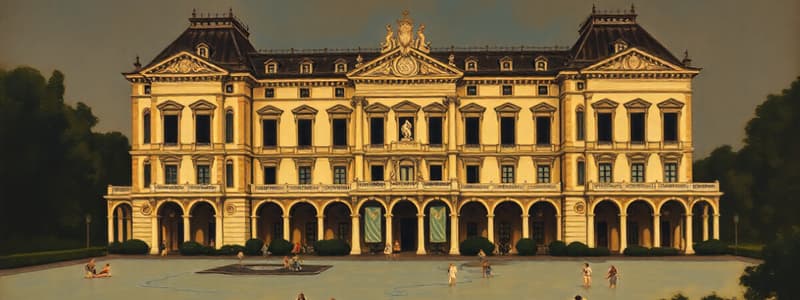Podcast
Questions and Answers
Contemporary architecture often utilizes materials such as wood and brick instead of steel and glass.
Contemporary architecture often utilizes materials such as wood and brick instead of steel and glass.
False (B)
Functionality is prioritized over ornamentation in contemporary architecture.
Functionality is prioritized over ornamentation in contemporary architecture.
True (A)
Romanticism in architecture was known for its flexibility and use of natural materials.
Romanticism in architecture was known for its flexibility and use of natural materials.
False (B)
Contemporary architecture aims to be sustainable and often incorporates new technology.
Contemporary architecture aims to be sustainable and often incorporates new technology.
Romantic Naturalism in architecture is characterized by its adherence to strict geometric rules.
Romantic Naturalism in architecture is characterized by its adherence to strict geometric rules.
Flashcards are hidden until you start studying
Study Notes
Contemporary Architecture
- Contemporary architecture is the current style of building design.
- Focuses on functionality and uses modern materials, including steel, glass and concrete.
- Prioritizes function over elaborate ornamentation.
- Often characterized by simple geometric shapes, clean lines and a minimalist aesthetic.
- Architects strive to create sustainable buildings and utilize new technologies.
Preceding Architectural Movements
- Romanticism influenced architectural styles from 1750-1850.
- Romantic Classicism focused on linear, stiff, and geometric forms.
- Romantic Naturalism emphasized a departure from rigid rules and relied on natural materials.
- The Romantic style often lacked meaning and vitality in architectural design.
Studying That Suits You
Use AI to generate personalized quizzes and flashcards to suit your learning preferences.




